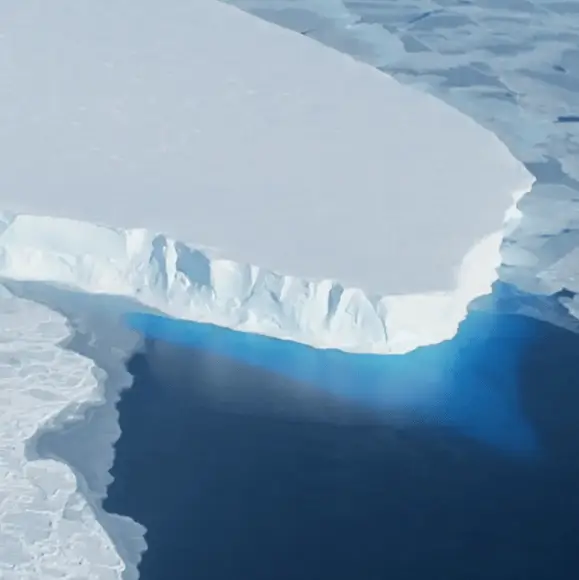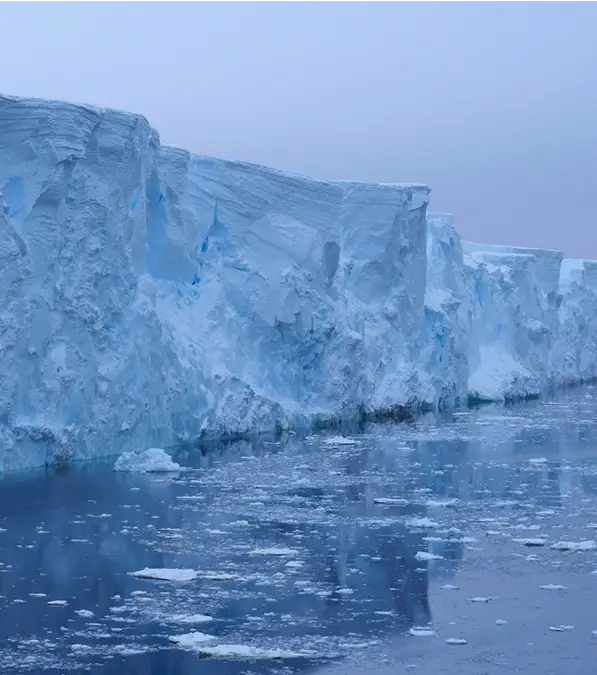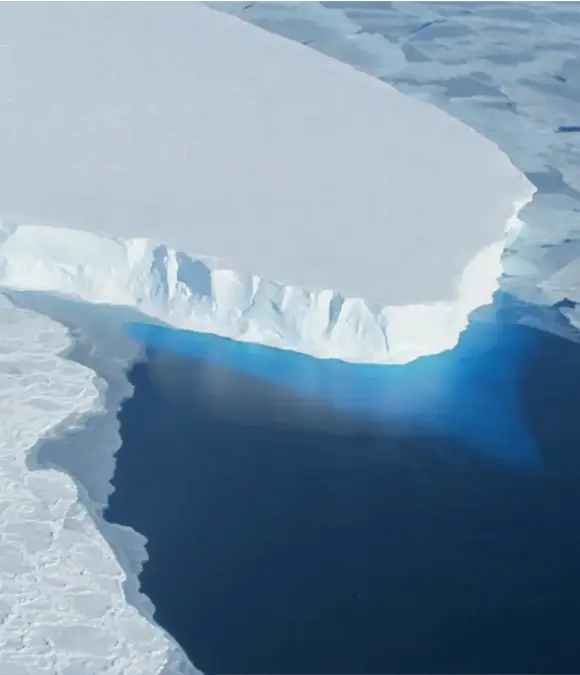


Professor John Moore is determined to slow down the alarming melting of the world's widest glacier in Antarctica.
Nicknamed the 'doomsday glacier', the 74,000 square mile Thwaites Glacier could spell disaster if no action is taken. Its sinister name was given due to the catastrophic sea level rise of up to 10 feet it could trigger if it collapses entirely.
Already, it's losing an astounding 50 billion more tons of ice than it gains and is contributing 4% to the world's sea level rise.
Since 2000, the Thwaites Glacier has lost more than a trillion tons of ice.
Advert

Professor Moore, glaciologist and geoengineering researcher of the University of Lapland, and his team propose installing a 62-mile-long curtain underneath the glacier to prevent the warm water from melting it.
The damage? $50 billion.
However, Moore is optimistic that the 29 nations in the Antarctic Treaty will recognise the urgency of the situation and pay the bill.
Much of the ice loss is a result of the warm, salty waters eroding the glacier's base from underneath.
With the increasing climate, and consequently warmer ocean temperatures, the glacier's melting process is faster than normal.
Alongside this, the winter cycle of refreezing is less effective at replenishing the melted ice every year. So, time is of the essence.

More explained: 'Beyond the tipping point, glaciers like Thwaites just collapse regardless of the CO2 concentration because the buttressing they need to be stable goes away as the floating shelf thins, like kicking away a prop holding up a fence.
'So if we want to replace the buttressing, we need to mimic nature and allow the shelf to thicken again and buttress itself.
'The way to reduce the melt is to block off some of the warm water reaching it.'
Moore pointed out that two of the biggest challenges are: making the glacial situation worse and putting the safety of the curtain workers at risk.
'The harsh conditions, the short working season with enough daylight, and the danger from the many icebergs that are around,' Moore continued.
The Thwaites Glacier is not the only glacier on Earth posing a threat, however, geoengineers are confident in developing technologies that could slow glacial melting on a greater scale.